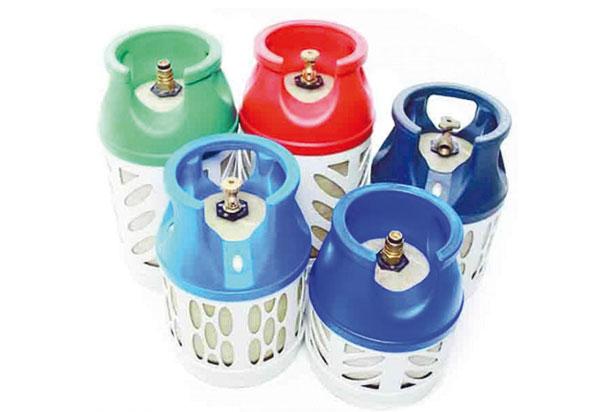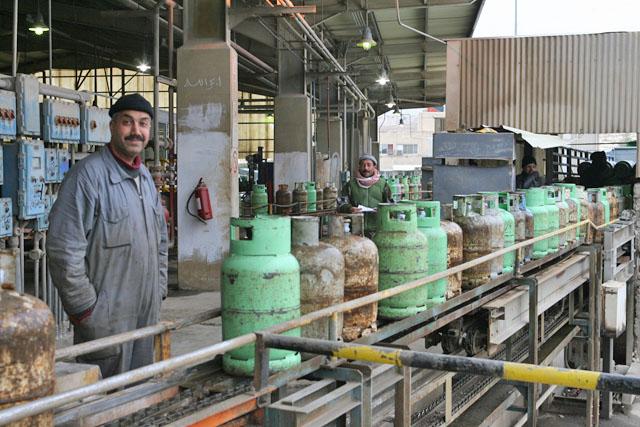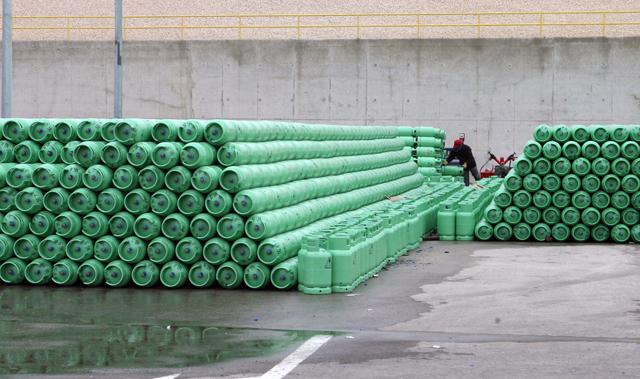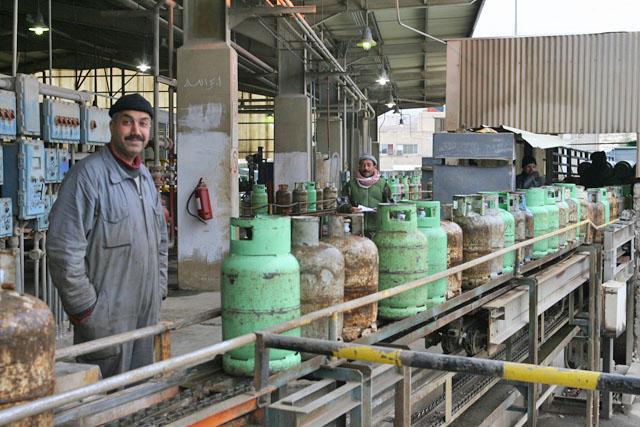You are here
Entry of plastic gas containers into local market may spark crisis — report
By JT - Jul 12,2022 - Last updated at Jul 12,2022

Petra photo
AMMAN — The government decision to end Jordan Petroleum Refinery Company’s exclusive right as the sole importer of domestic gas cylinders and allowing the entry of plastic gas containers into the local market has triggered mixed reactions, including a warning that a crisis may hit Jordan’s gasoline market.
Despite assurances by the Jordan Standards and Metrology Organisation that the plastic gas containers are subject to the Jordanian technical specification (JS1924), under which 21 examinations of the containers are mandatory, the fuel syndicate considers the plastic containers a “ticking bomb”, arguing that they lack safety, the Jordan News Agency, Petra, reported.
The Consumer Protection Society (CPS) and the fuel syndicate both see plastic cylinders do not meet the safety requirements that were set by a number of manufacturers of these types of containers, according to Petra.
The news agency also cited an unnamed energy expert who said that the plastic containers are safe, clean, lightweight, do not rust like those made of iron and can last up to 1,000 years.
However, the fuel syndicate said that allowing new types of cylinders requires legislative amendments in accordance with earlier specifications of the Energy and Minerals Regulatory Commission.
According to the commission, gas cylinders allowed entry into the Kingdom must be made of metal and meet Jordan’s standard specifications.
The fuel syndicate added that it does not allow for the circulation of any cylinders that fail to meet the Jordanian standard specifications in accordance with the legislation in force.
The fuel syndicate recently held a meeting to discuss the safety of plastic containers, resulting in referring a report to the Prime Ministry.
The report highlighted the risk of using these plastic containers, stressing they are unsuitable for the Jordanian market for not fully meeting the Jordanian standard specification 1924/2011, as well as failing to meet the safety requirements related to storage and handling.
Related Articles
Jordan Petroleum Refinery Company (JPRC) CEO Abdel Karim Alawin on Tuesday held press conference to talk about the controversial gas cylinders imported from India.
The Jordan Petroleum Refinery Company (JPRC) is buying 100,000 gas cylinders from a Turkish supplier to meet the anticipated increase in demand for the commodity during winter, a JPRC official said Thursday.
AMMAN — A controversial move to replace steel gas cylinders with plastic ones continues to garner scepticism from gas sector stakeholders ov

















